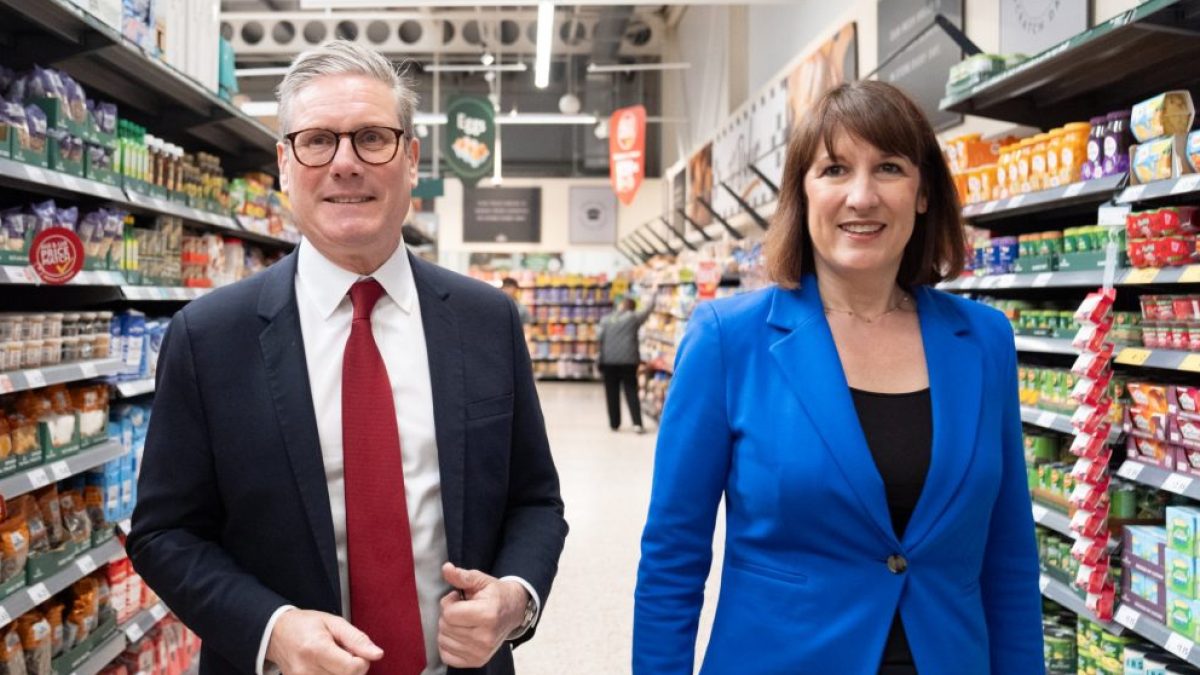Higher national insurance contributions and new levies on food packaging have been blamed for helping to increase prices
Rising food prices and persistently high energy bills threaten Labour’s pledge to boost living standards and hold off the political challenge from Reform UK, ministers have been warned.
MPs, economists and industry insiders said that both food and energy were likely to remain among the biggest costs for households, at a time when the Government is seeking to raise disposable incomes.
Butter, chocolate and red meat have seen the highest price rises over the past year – butter is nearly 20 per cent more expensive, with inflation for chocolate and lamb running at more than 10 per cent – and the FDF said that cocoa and butter prices were likely to continue growing.
Other types of food and drink experiencing inflation of more than 5 per cent include coffee, potatoes and fruit juice and dried fruit and nuts.
Sir Keir Starmer’s “plan for change” set out after the general election included an ambition of “raising living standards in every part of the United Kingdom, so working people have more money in their pocket”.
National insurance contribution rises blamed
No 10 insiders said that the cost of living was “absolutely this Government’s focus”, and Starmer received a boost last week when the Bank of England cut interest rates for the fourth time since Labour came to power – while retail sales have improved in a positive sign for consumers and businesses.
But the Office for National Statistics (ONS) reported this week that unemployment is on the up and wage growth has slowed in the wake of new taxes and legal obligations being placed on employers. The agency will publish its estimate of GDP growth for the first quarter on Thursday.
The Food and Drink Federation (FDF) is forecasting the price of good and drink to spike by an average of 4.3 per cent over 2025. Its director of sustainability and growth, Balwinder Dhoot, told The i Paper: “We are expecting food and drink inflation to keep going up this year.”
He blamed higher national insurance contributions and new levies on food packaging, adding: “You are talking about a £1.8bn hit to the industry which the industry will try to absorb, but some of it will be passed on to consumers.”
The FDF also warned that a new package of workers’ rights and higher taxes on fizzy drinks would push up inflation.
Energy bills also going up
Arnab Bhattacharjee, an economist at the National Institute of Economic and Social Research, said that food prices had been “growing for some time now”.
Energy bills, another major driver of the cost-of-living crisis after prices spiked in the wake of the Ukraine war, remain much higher than pre-pandemic levels and Craig Lowrey, from the respected consultancy Cornwall Insight, predicted they will stay at that elevated rate.
He said the current energy price cap, of £1,850 a year for the average dual-fuel household, would come down in the next quarter but stay above £1,700 – far higher than the cap of around £1,200 that prevailed a few years ago.
Lowrey added: “The drop certainly is welcome news for households, but it is still in absolute terms well above the levels seen at the beginning of this decade and the end of the last decade.”
Labour MPs call for action
Multiple Labour MPs told The i Paper that the Government needed to put more emphasis on tackling the cost of living, alongside its push to reduce immigration, in order to avoid losing more voters to Reform and other parties.
Jeevun Sandher, the MP for Loughborough who sits on the Commons Treasury committee, said: “Cost of living is the top priority for voters. If you look at the voters who are leaving us for Reform and the Greens, a lot of the story is the economy.
“When voters decide if we deserve another term the question is going to be, do I have more money in my pocket at the end of the month?”
He called for investment in clean energy and housing insulation to get bills down, as well as building more homes and creating jobs in post-industrial regions.
A Government source said that sealing a deal with the EU to align food safety standards, which is expected to be confirmed at a summit next week, would reduce the cost of taking goods across borders and help push down prices for consumers.
A No 10 source said: “Cost of living is absolutely this Government’s focus which is why the PM and Chancellor talk about putting more money in people’s pockets so often.
“Labour understands that keeping control of the public finances means you can get interest rates cut, rather than borrowing more and pushing up people’s mortgages.”
The source pointed to policies including a higher minimum wage, honouring the “triple lock” on state pensions, free breakfast clubs for primary schools and the rollout of free childcare as moves which will help lower living costs.
